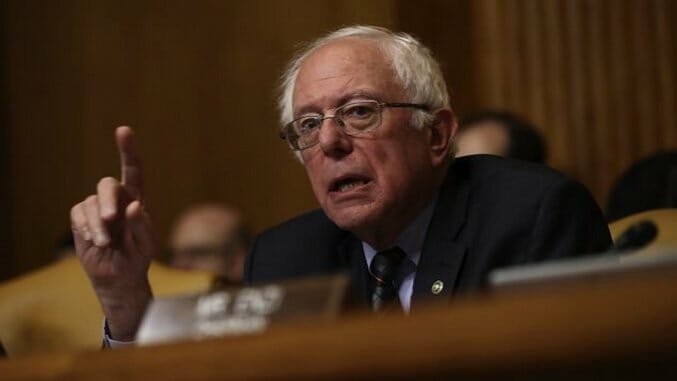Why Bernie Sanders’ Attack on Christian Theology was a Serious Political Blunder
Photo by Win McNamee/Getty
“Muslims do not simply have a deficient theology. They do not know God because they have rejected Jesus Christ, His Son, and they stand condemned.”
That’s the statement from Russ Vought, the nominee for deputy director of the Office of Management and Budget that caught the attention of Sen. Bernie Sanders in preparation for his confirmation hearing Wednesday. How you see that statement very likely depends on your own personal theology.
But by making this an issue of theology instead of policy, Sanders hurt his movement—and potentially his chance to become president in 2020—more than he probably realizes.
I say this as a diehard Bernie supporter who would like to see his progressive tent grow. His message of economic justice is appealing to young Evangelicals, Catholics and mainline protestants who recognize that there are more admonitions in the Bible against greed than there are verses dealing with homosexuality, abortion or any other hot-button topic on the right.
I don’t say this to defend Vought, whose article Wheaton College and the Preservation of Theological Clarity condemns a professor for stating the belief that Christians and Muslims worship the same God. I thought Wheaton’s actions betrayed the kind of theological close-mindedness and arrogance that’s helped push me away from orthodox, traditional Christian faith.
-

-

-

-

- Curated Home Page Articles By Test Admin October 21, 2025 | 3:10pm
-

- Curated Home Page Articles By Test Admin October 21, 2025 | 2:57pm
- Urls By Test Admin October 21, 2025 | 2:57pm
- Curated Home Page Articles By Test Admin October 21, 2025 | 2:55pm
-

-

-

-

-

-

-

-

-

-

-

-

-

-

-

-

-

-

-

-

-

-

-

-

-

-

-

-

-

-

-




































